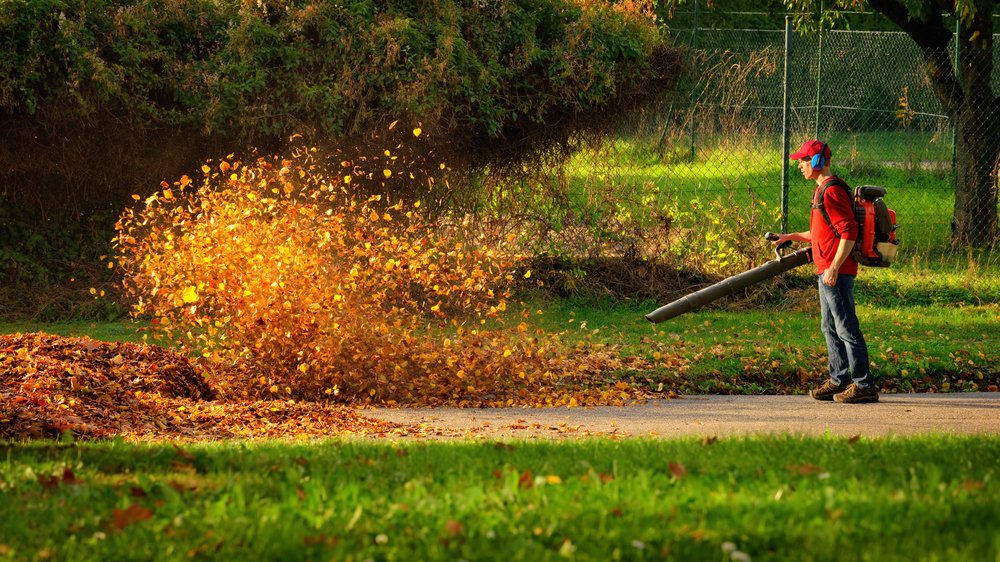
Durham’s residents deserve the freedom to live in a clean, quiet and safe city.
Durham’s unrestricted use of gas-powered leaf blowers take away freedoms, exposing residents and landscapers to extreme levels of health-harming toxins and noise.
Our goal is to get Durham to join the 100+ cities that have moved beyond gas-powered blowers in favor of protecting people’s health. Join your neighbors and tell Durham’s City Council you deserve the freedom to clean, quiet and safe homes.
Why should the City of Durham care?
Gas blowers spew a mind-boggling quantity of toxins known to travel deep into the lungs causing health problems from childhood asthma to cancer. More than a hundred city governments––including neighboring Portland––have stepped up and banned these tools. It’s time Durham do the same, and protect its children and landscapers from this harmful and unnecessary threat.
In tests, a single gas-powered leaf blower was revealed to spew more pollution than a truck over a 3,000 mile drive.
“Children are highly susceptible to these hazards [gas-powered leaf blowers] because they breathe more air per pound of body weight per day than adults and thus inhale more of any pollutants that are thrown into the air by this equipment. Children’s vulnerability is further magnified by the fact that their lungs, ears, eyes, and other organ systems are still developing, making them inherently more sensitive to environmental hazards than the organs of adults.”
Shouldn’t residents have the freedom to clean their home how they choose?
Residents not only have the right to upkeep their homes, but the responsibility to maintain safe walkways in front of them. Using or employing gas-blowers, however, creates a more dangerous environment for all. The impact of these polluting tools are especially hard on residents who stay, work, or raise children from home. Durham’s homeowners should have the freedom to enjoy a safe and peaceful community.
What about landscapers’ jobs?
Protecting landscapers’ freedom to make a healthy living should be the priority of every community. A well-to-do city like Durham has the means to safeguard its landscapers from tools known to double their risk of cancer. With so many cleaner and quieter solutions out there, there’s no excuse to jeopardize the health of the often minority workforce who don’t have the same generous health coverage of the clients they service.
How would a ban even work?
A ban would prohibit homeowners from using or employing gas blowers on their property. For those who contract landscapers, it would be the homeowner’s responsibility to ensure their crews use clean tools, easily accomplished by hiring an eco-crew, or providing an electric blower on site. Enforcing the ban would work the exact way as our city’s current tree code successfully has for 50+ years.
Tell Durham, Oregon’s city council you deserve clean air.
Let your city council know you’re tired of the incessant roar of gas-powered leaf blowers, and don’t want your kids breathing in all those toxins. Tell them it’s time to enforce limitations that protects its residents.
Yes, electric blowers are up for the job.
Today’s electric blowers beat gas in every way. They’re more powerful, they don’t pollute, and even when revving their engines they’re multitudes quieter. And yes, they’re affordable and cheaper than gas to maintain, and require no fuel to refill.
In head-to-head comparisons, today’s electric powered leaf blowers rival—and in many models—out perform gas, with none of the pollution.
Short-term solutions until Durham’s permanent ban:
Use cleaner, quieter alternatives.
Electric blowers have surpassed gas in power, are multitudes quieter, and don’t release fumes. Win-win-win.
Lend your clean and quieter electric blower to your neighbors and yard crews.
If you live near kids, keep in mind little ones’ lungs are still developing and they’re the most susceptible to pollutants.
Consider the elderly, pregnant and newborns in your neighborhoods. Quiet options are a godsend for the mom trying to put her baby down for a nap.
Be courteous about time.
If you use a lawn care crew, schedule them for a weekday and not on weekends when most people are home.
Avoid gas-blowing after 3 PM when the kids are home from school, and families are eating dinner.
If weekends are your only chance to do yard work, consider the person on the other side of the fence and opt for a quieter tool.
Don’t blow on public holidays when everyone is home.
Talk to your neighbors about coordinating blowing times to get it all done at once.
Just leave the leaves be!
If you’re like most Durham residents, you retreat indoors during the fall and winter months.
While staying warm inside you can rest assured your leaves aren’t hurting anyone outside. In fact, they are helping replenish the natural ecosystem that makes Durham so beautiful.
Rather than trying to catch every leaf as it falls, leaving them until fall ends helps protect the environment and helps saves you time, effort and money.
Join your neighbors in protecting Durham, Oregon’s health from gas-powered leaf blowers.
Let’s go clean, Lake Oswego!
The Lake Oswego Sustainability Network is making incredible headway in the transition to a cleaner, greener and more sustainable city. Check out their extensive resources here.
















